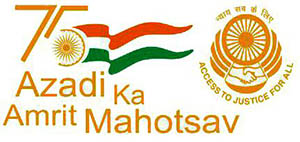ICMR Challenges 'Science Advances' Study on Excess Mortality..
New Delhi/Shimla – A recent study published in Science Advances journal claimed that India experienced 11.9 lakh excess deaths in 2020 mainly due to the COVID-19 pandemic.
This estimate has been met with strong opposition from the Indian Council of Medical Research (ICMR), which has labeled the findings as grossly exaggerated and methodologically flawed and skewed.
Findings from Science Advances
The Science Advances study bases its findings on data from the National Family Health Survey-5 (NFHS-5).
It compares mortality in a subset of households surveyed between January and April 2021 with mortality in 2019, then extrapolates these results to the entire country.
The study asserts that India’s excess deaths in 2020 were significantly underreported and posits a figure of 11.9 lakh excess deaths.
Major Points from Science Advances:
- The study suggests an underestimation of COVID-19 deaths by official records.
- The analysis claims significant mortality impacts in both females and younger age groups.
- It argues that India's vital registration system undercounts deaths, particularly during the pandemic.
ICMR's Rebuttal
Dr. Rajiv Bahl, Director-General of the ICMR, has criticized the *Science Advances* study, citing several critical flaws:
- The study used a non-representative sample from only 14 states, which does not reflect the national mortality trend.
- The timing of data collection during the peak of the pandemic could introduce biases.
- The ICMR emphasizes the robustness of India’s Civil Registration System (CRS), which recorded over 99% of deaths in 2020.
The CRS data showed an increase of 4.74 lakh death registrations compared to 2019, consistent with historical trends and not solely attributable to the pandemic.
Major Points from ICMR:
- ICMR argues that the NFHS-5 data is only representative when considered in its entirety, not in isolated subsets.
- The actual increase in deaths, per CRS data, is markedly lower than the 11.9 lakh figure suggested by *Science Advances*.
- Established COVID-19 mortality patterns in India show higher mortality in males and older populations, contradicting the *Science Advances* findings.
Independent Opinions
Independent experts have offered various perspectives on this issue:
- Dr. Jacob John of the Christian Medical College acknowledges potential undercounting but stresses the need for comprehensive surveys to ascertain the true extent of COVID-19 deaths.
- Philip Schellekens, a senior advisor to the World Bank, estimated that India's excess deaths during the pandemic could be as high as five million, suggesting severe underreporting by official figures.
The contrasting data from the *Science Advances* study, which is extrapolated and the ICMR which is based on more robust system followed in each state, each district highlight the complexities in assessing the true impact of the COVID-19 pandemic on mortality in India.
While independent analyses suggest significant underreporting, the ICMR maintains that the country's robust registration systems provide a more accurate picture.
This ongoing debate underscores the necessity for more detailed and representative data collection to fully understand the pandemic's toll.








